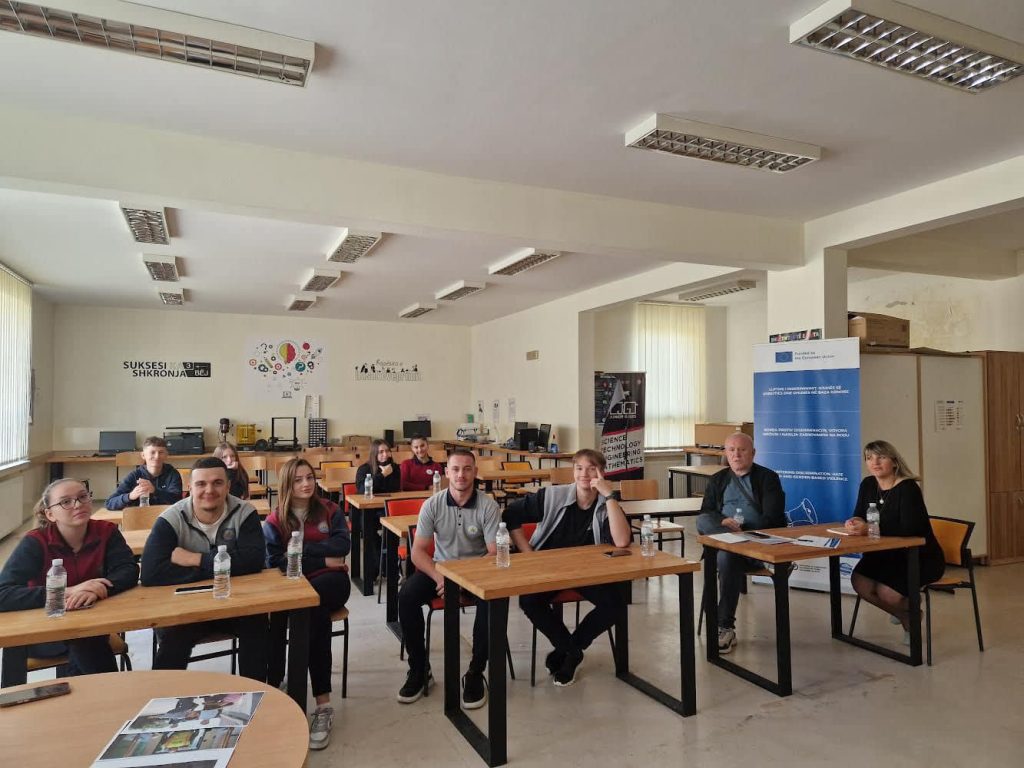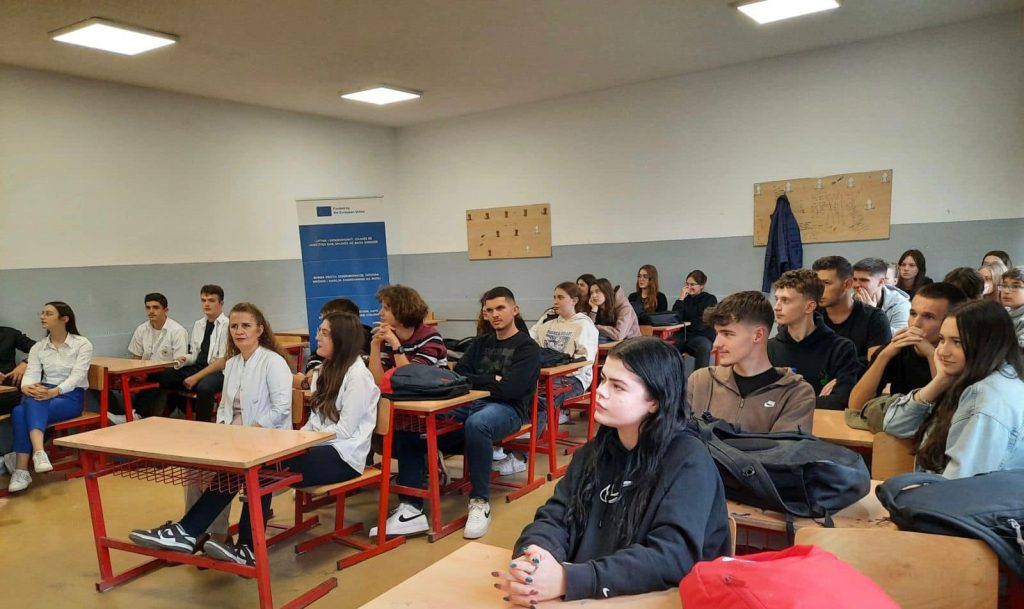Project
- Project
//OUR PROJECT
Countering discrimination, hate speech, and gender-based violence
Context
The unaddressed legacies of the 1990s wars continue to cultivate religious, ethnic, and political divisions. Marginalised groups are still regularly the victim of discrimination and even hate speech and hate crimes. ATRC and its partners aim to support victims, duty bearers and institutions in mitigating discrimination and hate as well as improve its response to these phenomena.
Project overview
The Advocacy Training and Resource Center (ATRC) and its partners Internews Kosova (IKS) and Democracy for Development D4D contribute to increased institutional transparency and accountability as well as enhanced citizen’s awareness and mobilization to counter discrimination, hate speech and gender-based violence by enhancing the transparency and implementation of anti-discrimination legislation and policies, strengthening the capacities of duty-bearers and young people combatting discrimination and all forms of violence and raising awareness on hate-speech and gender-based violence. This program is funded by the European Union and will be implemented by June 2025.

The program has five 4 key beneficiary groups:
1. Youth 14 - 17, and youth from political parties.
2. Teachers and educational institutions (schools, universities)
3. Public institutions (Municipalities, Centers for Social Work, Kosovo Police, Health institutions)
4. Communities
The program has 3 key objectives:
1. Enhancing the transparency and implementation of anti-discrimination legislation and policies through monitoring and reporting.
2. Strengthening the capacities of duty-bearers and young people in combating discrimination and all forms of violence through trainings and small grants.
3. Raising awareness on countering hate-speech and gender-based violence through advocacy activities .

//IMPACT
National
Monitor and report on the implementation of anti-discrimination policies and provide concrete recommendations to increase awareness on the topic.
Municipality
Increase the capacities on duty-bearers providing psycho-social services to help victims of hate crimes, bullying or other forms of violence and discrimination.
Community
Promotion of diversity and equality, situation analysis of discrimination, and raising awareness of the anti-discrimination policies.
Individual
Increase access to quality psycho-social services for victims of hate crimes, bullying and other forms of violence.

// Key Activities
- Developing two reports on the implementation of anti-discrimination policies.
- Organizing two annual conferences to publish anti-discrimination reports, provide concrete recommendations, and raise awareness of anti-discrimination policies.
- Publish six stories to identify human rights issues and promote creative approaches to mitigating or resolving them.
- Provide trainings on the topics of “fake news, hate incitement, prevention and advocacy for human rights” for 30 young people from political parties.
- Award and manage five grants to local youth CSOs to counter discrimination, hate speech, and other forms of violence.
// ATRC's Added Value
- ATRC’s activities with youth have a participatory approach. It ensures that youth are part of the design, implementation and reflection of initiatives implemented for youth and by youth.
- Sustainability is a key consideration from the design phase of the project. ATRC supports the capacity building of their key target groups to encourage their continued impact, engagement, and growth beyond the project duration.
6. Organize a youth camp with 25 young people to promote equality, diversity and human rights in communities.
7. Support small youth-led initiatives in schools that promote equality and diversity.
8. Organize three capacity strengthening trainings on providing psycho-social services to support victims of hate crimes, bullying, and other forms of violence and discrimination.
9. Conduct “school safety meters” a situation analysis on school security through focus groups with parents, children and child protection professionals.
10. Organize 10 discussion for a on findings from the anti-discrimination reports.
